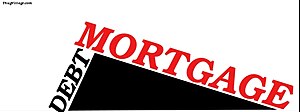- Image by Dalboz17 via Flickr
Conventional wisdom says that, when negotiating your salary or a raise, you should make whatever crazy ninja maneuvers it takes to get the other person to name a number first.
Horse pellets.
Have you ever watched an infomercial? Those masters of of impulse marketing geared towards insomniacs, invalids, and inebriates?
“How much would you pay for this fabulous meat tenderizer/eyelash waxer? $399? $299? No! If you call within the next 73 seconds, we will let you take this home for the low, low price of just $99.99!”
That’s the magic of anchor pricing.
The first number you hear is the number you will base all further numbers on. If you hear a high number, other lower numbers will feel much lower by comparison. The number doesn’t even have to be about money.
There was a study done that had the subjects compare a price to the last two digits of their social security numbers. Those with higher digits found higher prices to be acceptable, while those with lower prices only accepted cheaper prices.
What does an infomercial marketing ploy have to do with your salary?
If you are negotiating your salary and your potential employer gives a lowball offer, every higher counteroffer after that will much, much higher than than it would otherwise. On the other hand, if you start with your “perfect” salary, they amount you will be happy to settle for won’t seem to be nearly as high to the employer. At the same time, you will be less likely to accept a lowball offer if you set your anchor price high.
For example, if you are looking to make $50,000:
The employer offers you $40,000. $60,000 seems too high by comparison, so you counter with $50,000, then compromise and settler for $45,000. Or, you could start at $60,000, making the employer feel that $40,000 is too low, so he counters with $45,000, leaving a compromise at $52,000. That’s a hypothetical $7,000 boost, just for bucking conventional wisdom and taking a cue from the marketing industry.
How have you negotiated your salary?







